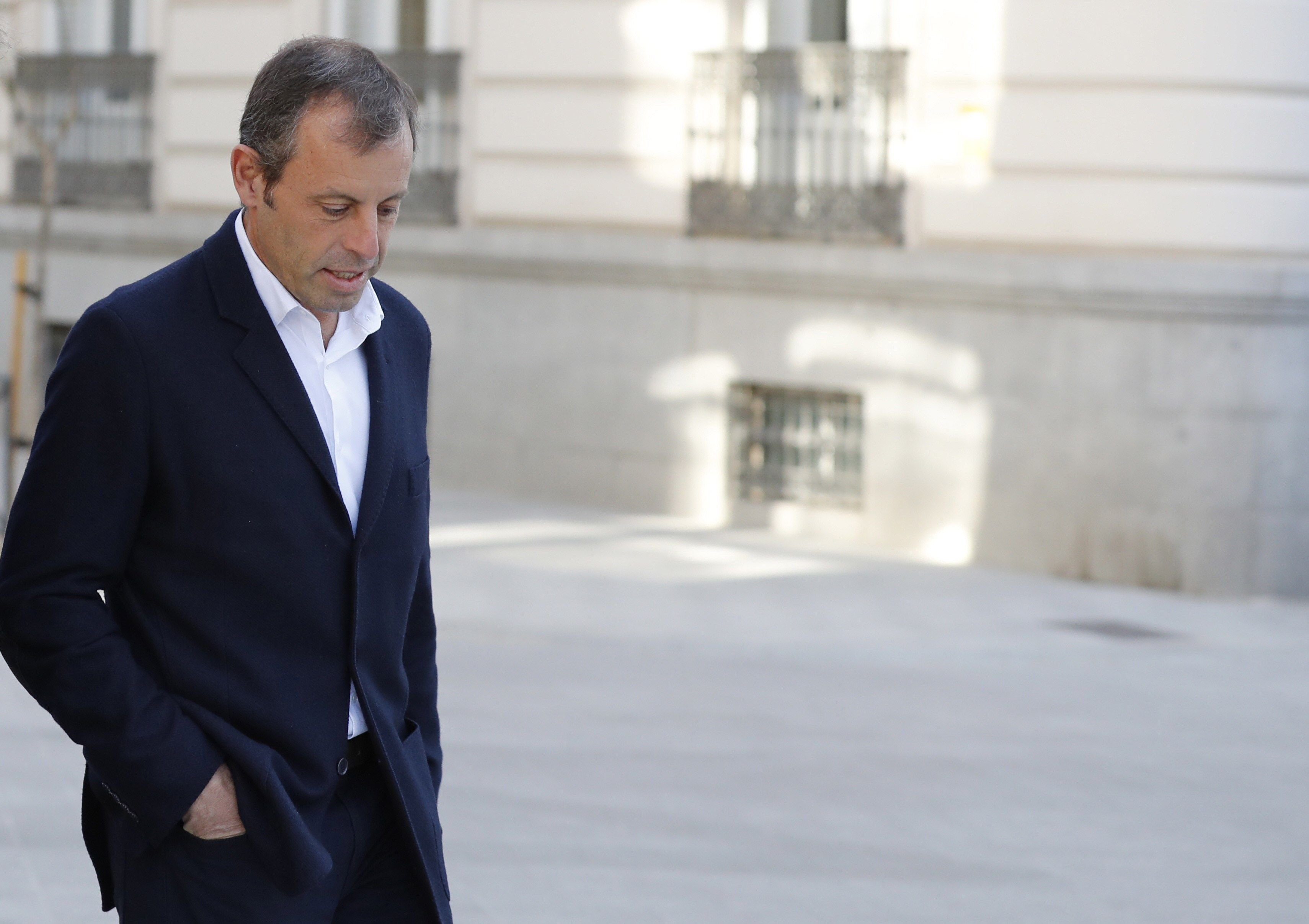Spain's National Audience has acquitted former president of FC Barcelona Sandro Rosell and his five fellow defendants of laundering commissions for the television rights to 24 Brazilian national team matches and a sponsorship contract with Nike. The court found that the evidence provided in court hadn't proven the charges beyond reasonable doubt and, as such, found in favour of the accused under the principle of "in dubio pro reo" (Latin: in case of doubt, in favour of the defendant).
At the end of the oral hearings, prosecutors modified their provisional findings from the start of the trial. They asked the judges to sentence Rosell to six years in prison for money laundering and criminal organisation. For Andorran lawyer Joan Besolí they wanted five years, and for Rosell's wife, Marta Pineda, and Pedro Andrés Ramos, José Colomer and Shaha Ohannessian, between 18 and 23 months.
Twenty-one months in prison
Rosell spent a year and nine months in detention without bail before and during the start of his trial. In fact, alongside Joan Besolí, also acquitted today, he has spent the longest time of anyone in Spain in pretrial detention for an alleged financial offence. He was refused release ten times, as judges also turned down alternative measures proposed by the defence, like an electric bracelet, withdrawal of his passport and a 35 million euro bail.
The investigation
The court notes that the investigation was handled by UDEF (the Economic and Fiscal Delincuency Unit of Spain's National Police Corps) and UCO (the Central Operative Unit of the Civil Guard). It derived from an investigative commission in the USA after an investigation by New York prosecutors over the participation of FIFA officials in criminal activities and suspicions the defendants had received millions of dollars' worth in illegal payments like kickbacks and clandestine commissions.
The judges say they understand why the police units started their investigation and the hypothesis they were working under. Nonetheless, they believe that the evidence brought during the trial, especially that from the defence, "we are left with, at least, doubts, both relating to the illegality of the commissions (bribes) and in respect to the suspicions given over the various companies, doubts which, applying the principle of in dubio pro reo, we insist, have to result in acquittal".
The court "doesn't discount" the possibility that what the prosecution claimed were illegal commissions and companies to hide money could have been above board: payments for normal business activities and companies engaged in the same.
On the charge of money laundering, the court notes that would require prior dirty money from some other crime which the accused tried to launder, something which they do not believe has been demonstrated. They add that in any case, it would have been committed in Brazil, in which case "it's essential to determine whether the principle of double criminality stands, that is, whether the facts subject to trial would be crimes in both Spanish and Brazilian law".

